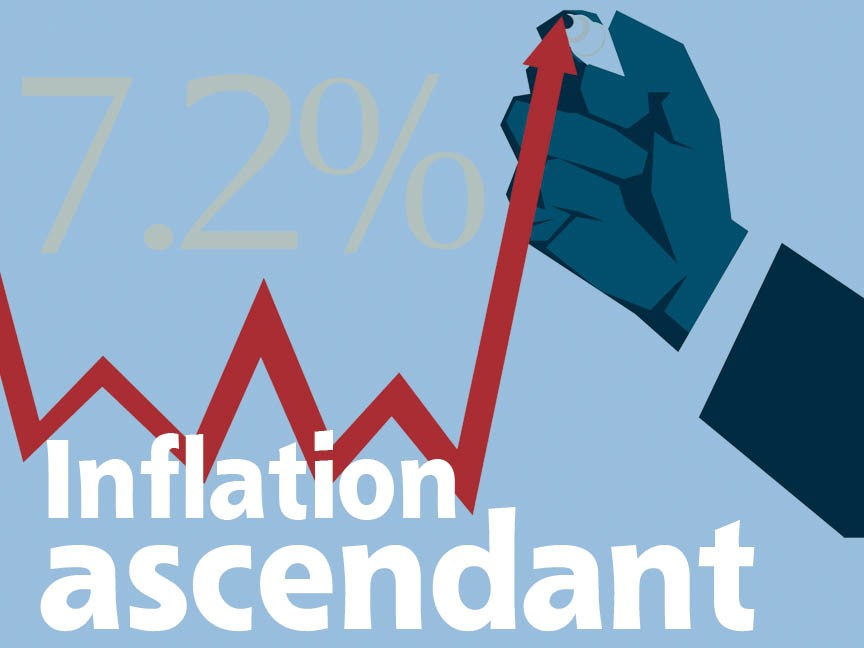

Early this month the Pakistan Bureau of Statistics (PBS) announced the rate of inflation for the month of January to be at 7.2 percent -- the highest in the last four years. Obviously, that set the alarm bells ringing, with government officials and independent economists explaining the figure in their own way. But what does inflation mean to the common man? Simply put, it means items of daily use, especially food items, become dearer. How inflation can be controlled is something for which he looks up to the government for an answer.
Hardcore economics is not a layman’s area of interest, inflated bills are. Since this government came into power last year riding on the slogan of tabdeeli (change), the common man has been expecting a change for the better in their lives but so far his expectations have not been met. The prices of items of daily consumption -- ghee, sugar, milk, flour, etc. -- have instead gone up; thus, lending weight to the perception that this government has been unable so far to steer the economy out of the difficult situation, or at least put it in the right direction. Broadly speaking, the twin deficits -- fiscal and current account -- remain a huge challenge.
Also read: Inflation ascendant
While the SBP tightens the monetary policy by increasing the interest rates and the government seeks friendly countries’ help to ease down the stress on economy, these short term measures show the government in a panic mode. Tightening the monetary policy by the SBP does not go well with large-scale manufacturers as well. The rationale given for the increase in the policy interest rate by the SBP to 10.25 percent is that due to less borrowing and more savings, the circulation of money in the market will come down and help control inflation. But the business community considers it an anti-investment move; expensive loans do not lure investors.
So, what is the way out? As senior economist, Dr Nadeem Ul Haq puts it, Prime Minister Imran Khan should reform the governance structure "from colonial command and extraction to a modern thoughtful, decentralised, professional and non-politicised".